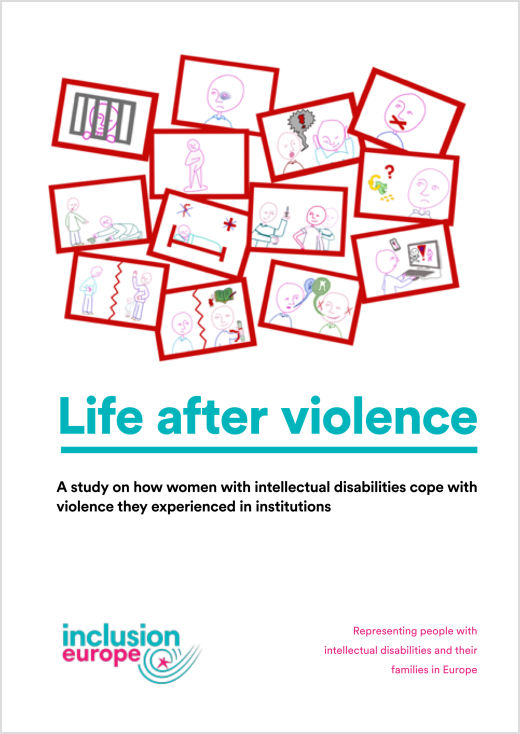An Inclusion Europe report on how women with intellectual disabilities cope with the violence they have experienced in institutions.
Authors: Juultje Holla and José Smits
In this important report from Inclusion Europe, which is based on 10 in-depth interviews, women with intellectual disabilities tell their stories about violence in institutions.
The report also provides a number of recommendations starting with inclusive education from an early age and most importantly putting an end to the institutionalisation and segregation of women with intellectual disabilities.
Senada Halilčević, Vice-President of Inclusion Europe and Chair of the European Platform of Self-Advocates, writes in her Foreword to the report:
“This publication gives you the opportunity to listen to what the women are saying about violence that happened to them mostly in institutions.
It starts with understanding what violence is, through learning how the women dealt with it, to recommendations on how we can improve the situation.
Sometimes it is difficult to read about all these bad experiences.
But we should not close our eyes and ears from what women have to go through.
Perhaps we can take courage in the examples these women set in dealing with the violence and abuse, and in not allowing it to shape their whole lives.
There is life after violence.”
Read and download the free pdf in your browser, link below.
An easy read version of the report is available on Inclusion Europe's website, and also interviews with the authors and self-advocates: www.inclusion-europe.eu

The publisher is Inclusion Europe.
Life after Violence © Inclusion Europe 2018.
All Rights Reserved. No part of this paper may be reproduced in any form without permission from the publisher except for the quotation of brief passages in reviews.
children and families, intellectual disabilities, social care, Europe, Paper